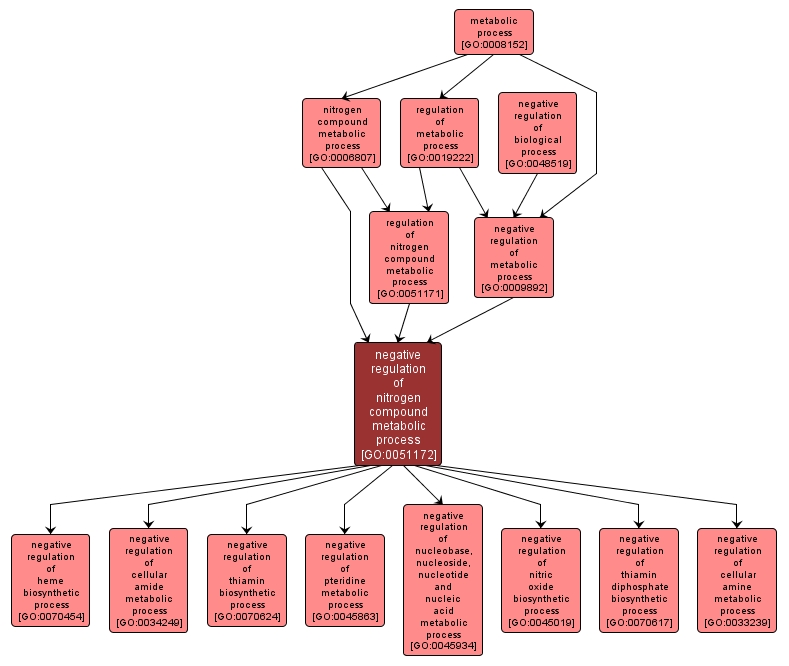GO TERM SUMMARY
|
| Name: |
negative regulation of nitrogen compound metabolic process |
| Acc: |
GO:0051172 |
| Aspect: |
Biological Process |
| Desc: |
Any process that stops, prevents or reduces the frequency, rate or extent of the chemical reactions and pathways involving nitrogen or nitrogenous compounds. |
Synonyms:
- down regulation of nitrogen metabolic process
- negative regulation of nitrogen metabolism
- down-regulation of nitrogen metabolic process
- inhibition of nitrogen metabolic process
- negative regulation of nitrogen metabolic process
- downregulation of nitrogen metabolic process
|
|

|
INTERACTIVE GO GRAPH
|














